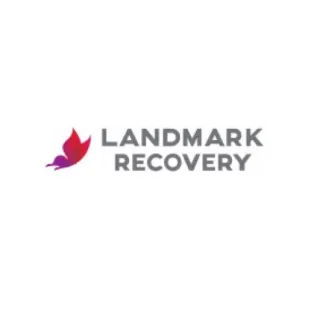Centerboard Recovery Center
Centerboard Recovery Center offers outpatient treatment for individuals with alc...
Situated in Aurora, Colorado, Landmark Recovery of Denver is a drug and alcohol treatment center that supports adults with substance use disorders. They also provide valuable community resources, including referrals and family support services.
Addiction-related services at Landmark Recovery of Denver include mental health assessments, counseling, detox, residential addiction treatment, and outpatient programs.
Mental Health Assessment and Counseling Assessments help to evaluate mental health status and to create an individualized treatment plan. Treatment activities may include individual, group, and family counseling.
Inpatient Medical Detox Withdrawal management supports individuals to safely and comfortably detox from drugs and alcohol with the use of medication. Following detox, it is usually recommended to attend a residential or outpatient addiction treatment program.
Residential Addiction Treatment Residential treatment involves staying at a rehab facility for a minimum of 30 days. Programs start with a comprehensive assessment to determine individual needs and provide a customized treatment plan. Participants receive individual and group counseling, attend educational groups and recovery meetings.
Outpatient Programs Outpatient programs are best suited to individuals who need addiction treatment, but don’t need 24-hour care, such as those with childcare responsibilities or those with milder substance use disorder. Each outpatient program varies, depending on the severity of the participant’s substance use disorder. For example, those with mild addiction may attend a regular outpatient program, whereas those with more severe SUD, may attend an IOP or a partial-hospitalization program (PHP), which requires participants to attend individual and group treatment sessions several days a week.
Contact us for more information: (720) 702-9994

Connect with Landmark Recovery of Denver by calling their admissions team directly.
(720) 702-9994 Website Get DirectionsLegitScript has reviewed Landmark Recovery of Denver as part of their certification program, and has determined that it meets the LegitScript standards for legality, safety and transparency.
LegitScript verified in November 2021
Group therapy is any therapeutic work that happens in a group (not one-on-one). There are a number of different group therapy modalities, including support groups, experiential therapy, psycho-education, and more. Group therapy involves treatment as well as processing interaction between group members.
In individual therapy, a patient meets one-on-one with a trained psychologist or counselor. Therapy is a pivotal part of effective substance abuse treatment, as it often covers root causes of addiction, including challenges faced by the patient in their social, family, and work/school life.
Recreational therapy (aka therapeutic recreation) uses creative and fun activities to help with addiction recovery. Recreational therapists lead patients in entertaining and engaging activities like sports or games; art (drawing, painting, sculpture); drama, music, and dance; and/or community outings (field trips) to improve patients' physical, social, and emotional well-being.
In individual therapy, a patient meets one-on-one with a trained psychologist or counselor. Therapy is a pivotal part of effective substance abuse treatment, as it often covers root causes of addiction, including challenges faced by the patient in their social, family, and work/school life.
Recreational therapy (aka therapeutic recreation) uses creative and fun activities to help with addiction recovery. Recreational therapists lead patients in entertaining and engaging activities like sports or games; art (drawing, painting, sculpture); drama, music, and dance; and/or community outings (field trips) to improve patients' physical, social, and emotional well-being.
Recreational therapy (aka therapeutic recreation) uses creative and fun activities to help with addiction recovery. Recreational therapists lead patients in entertaining and engaging activities like sports or games; art (drawing, painting, sculpture); drama, music, and dance; and/or community outings (field trips) to improve patients' physical, social, and emotional well-being.
Centerboard Recovery Center offers outpatient treatment for individuals with alc...
Life Continues Recovery of Colorado is a peer support and coaching service in De...
Aurora Mental Health Center – North Aurora Center is a non-profit rehab located ...
Aspen Treatment Services is a public rehab located in Denver, Colorado. Aspen Tr...